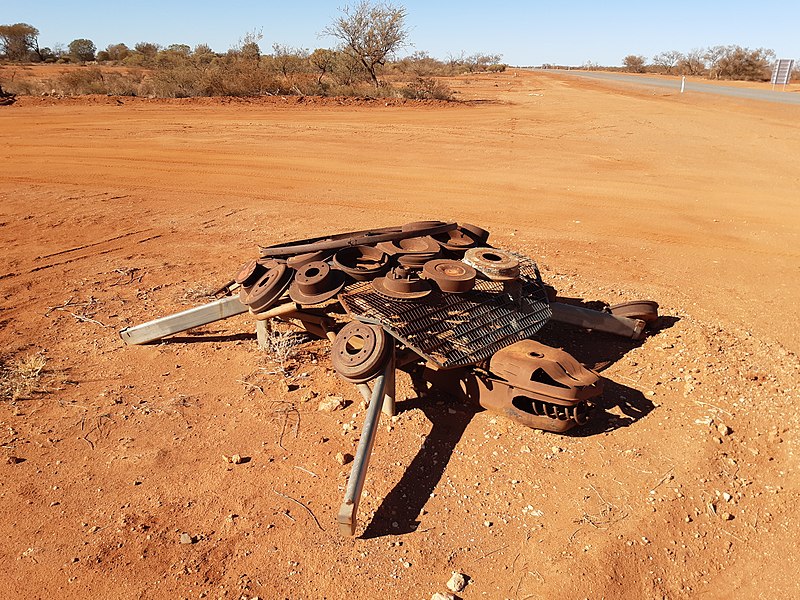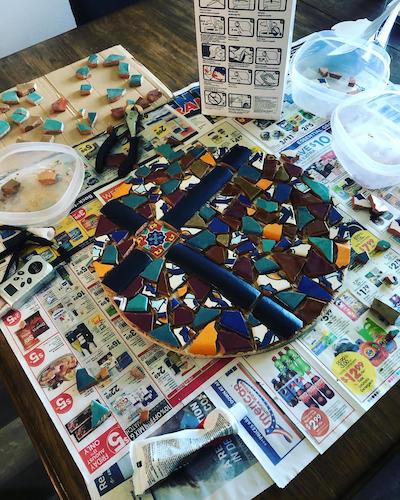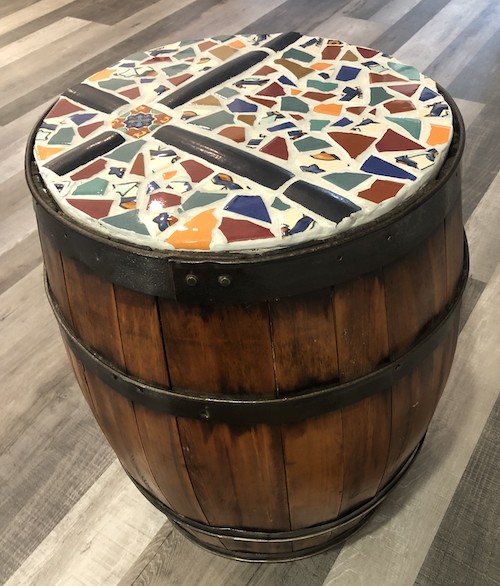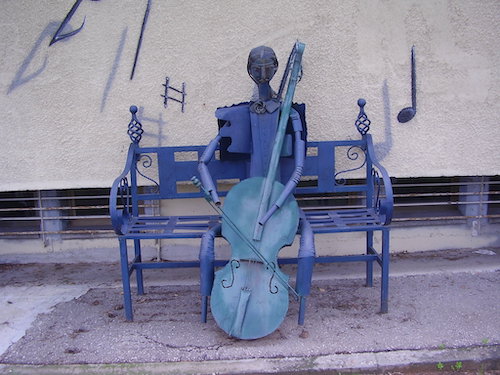Ian Barth is an occasional writer, suspected to have an interest in poetry, and is an enthusiastic amateur vigneron. He lives with his family and some farm animals in Sussex.

There is a consensus that all creative endeavours fall somewhere on the spectrum between art and craft. On the one extreme is the avant-garde artist, who has enormous inspiration but limited technical ability, making a sculpture out of bicycle parts, bananas and motor oil; on the other the tent-peg maker who uses the same materials, techniques and tools as her mother and grandmother stretching back over millennia, laboriously crafting an outdated product that a machine could do much better in much less time. There is, obviously, a place for both, and of course most art involves a huge amount of practice, skill and ability, while successful craft is immeasurably enhanced if the person making it has a sense of beauty. This piece is really about neither. It’s a hymn to the idea of being handy.
There are some people who can walk past a mural, a bench, or a patio, and stop and look at how it was made, and think, “Yeah, I could do something like this, let me give it a go.” They are not trying to create a work of art nor master a particular craft, they simply relish the challenge of making something they have not made before. You probably know somebody like this. You are in some new place with them and they are forever stopping to point at a building or a foot bridge saying, “Look at the way those beams come together. I wonder why they did that?” and then climbing up or peering underneath to get a better look. Most of us laugh at the way they behave but it’s respectful laughter. We wonder what drives these people. Why do they care? What makes them different?


Handy people are outliers these days. Having an extensive practical skill set is completely unnecessary in most of the world. Why bother turning the hide of that roadkill deer into a pair of leather boots? Who cares? We do care, though, at some level. We sense the loss of value in the cheap goods we are addicted to buying online. We’re frustrated by our lack of ability to assemble flat pack furniture, or hang a picture, or fix a leaky faucet. It could be argued that our lack of handiness is a contributor to a general sense of malaise in much of Western society. We’re incredibly reluctant to attempt anything we have not been trained to do, we lack the basic skills that were common a few decades ago, and we don’t know where to start. We like to box ourselves into comfortable stereotypes.
Interestingly, there seems to be something of an international movement to counter this by creating open access work spaces, some as part of larger organisations like Makerspace and Repair Café, some as stand-alone, locally supported workshops. Ironically it has never been easier to find out how to build a boat, fix a coffee maker or make a pulse jet engine. There is a vast array of online forums and YouTube channels on everything from carpentry to wine making; lots of people are more than keen to share their knowledge or trade ideas. For all that, though, it does seem a little niche, more about retirees finding creative things to do than the massive grassroots resurgence that it ought to be.
There are some people who claim that practical skills are beyond their abilities; you probably know someone like this as well. It’s often expressed with just perceptible middlebrow overtones, as though being able to plaster a hole in the wall is something best left to tradesmen, as though the inability to drive a straight nail is an indication of cleverness. Simply closing one’s mind to the possibility of practical aptitude, though, is narrow and self-restrictive. It leads to a lack of curiosity about how things work and why they work which not only reinforces ineptitude but impoverishes the senses. Obviously, there are plenty of jobs – such as electrical repair – that need to be performed by trained technicians, but if you can at least imagine becoming a tree surgeon, the appreciation of watching one at work is taken to another level. You can see yourself going up the tree with climbing spikes, a chainsaw dangling from your belt. You can sense what it must feel like to straddle a limb while cutting a 100 kg chunk off the front of it, almost feel the tree snap back beneath you as the piece cuts free and drops to the ground.


Perhaps being handy is above all a mindset, a default attitude of curiosity about the way things work in the physical world around us. Like any other discipline it improves with practice; starting from scratch involves using almost-forgotten brain pathways and muscles that have been allowed to atrophy. It involves a lot of false starts, a lot of failure, and the lurking dread of humiliating and catastrophic embarrassment. Once started, though, you will find it incredibly addictive. The act of doing stuff, that combination of brain and hand in figuring out what to do and then doing it gives a sense of fulfilment and satisfaction unlike anything else. It’s a massive boost of creativity and confidence that feels better than exercise or diet or meditation and it changes a person’s perception of the world; you become one of the people who does things rather than one of those who waits for them to be done.
People in the habit of making stuff are alive to possibilities. They tend to get a hungry look in their eye when they see raw material. That beer keg discarded on the roadside could be turned into a charcoal grill. That pile of old concrete blocks would make a lovely retaining wall in the back garden. It might be possible to cut a platter out of that lump of gypsum. The old chainsaw would make an amazing power assist on a bicycle. Broken things are a great opportunity for a self-guided lesson on how they work. If the loo is not flushing take a look in the tank; it’s probably a simple mechanical failure. How hard could this possibly be?
At a time where the pace of technological advancement is increasing almost uncontrollably it is striking that we continue to feel that nothing works the way it should. We all moan about the broken office window that is still not fixed, the lack of parking spaces, hospital waiting lists, the ever more life-threatening potholes on the village high street, the general ineptitude of the government. Is there a link between building your own bookshelf and your mobile provider sorting out the phone signal coverage? Maybe there is. Maybe the problem is us. Maybe the problem is that we have collectively allowed ourselves to be robbed of the agency of being handy.

The Kirby Laing Centre for Public Theology in Cambridge. Charity registered in England and Wales. Charity Number: 1191741
Kirby Laing Centre, The New Mill House, Unit 1, Chesterton Mill, French’s Road, Cambridge, CB4 3NP
© 2022 The Kirby Laing Centre for Public Theology in Cambridge